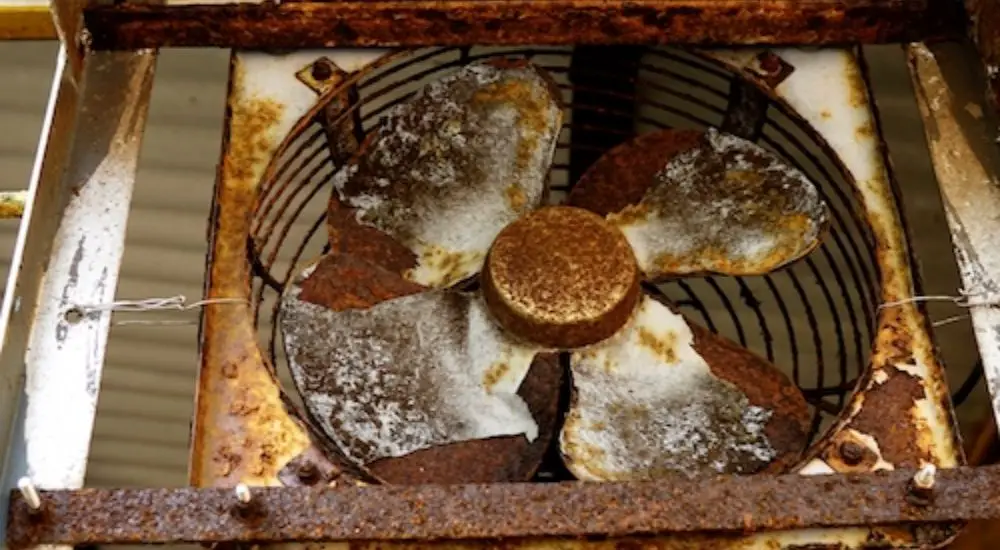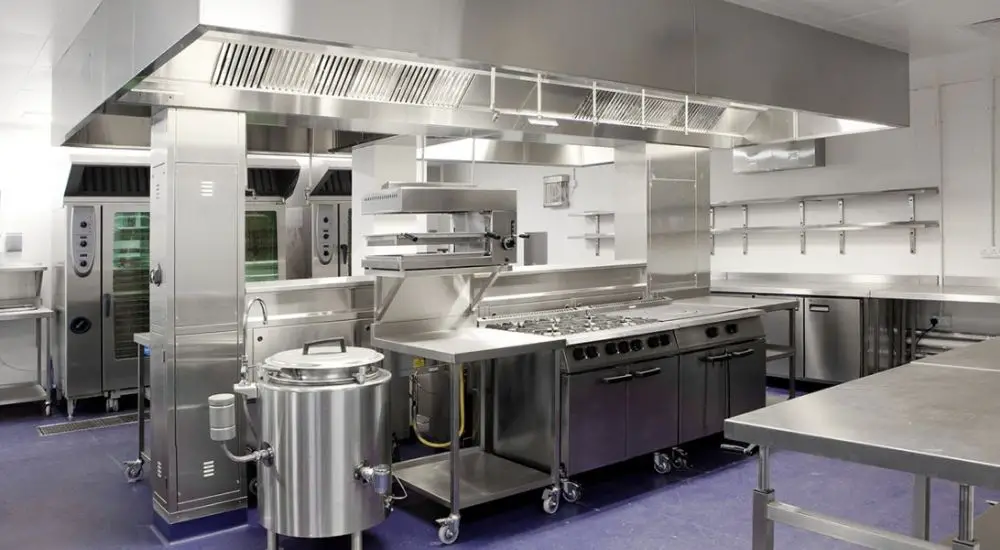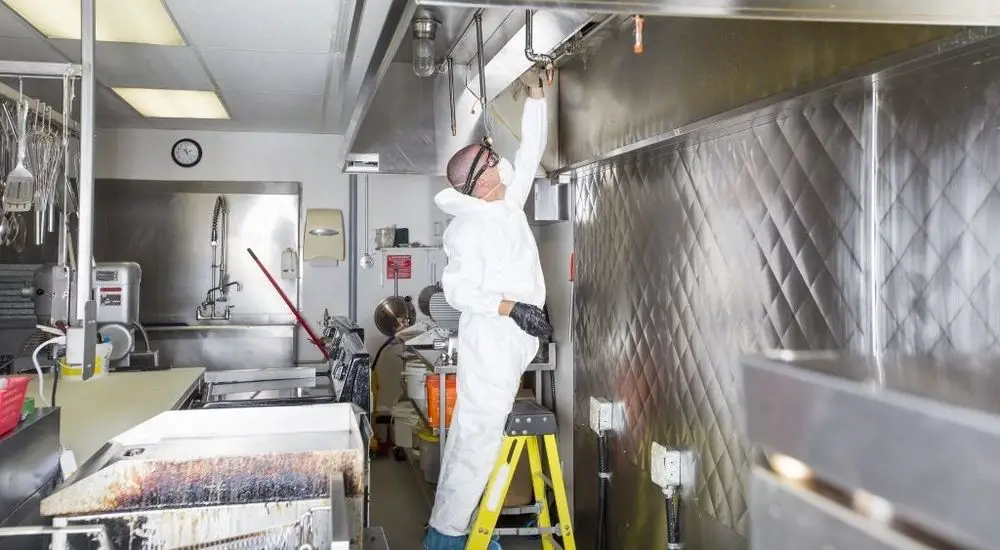
Regardless of the facility, all commercial kitchens must uphold a high standard of cleanliness regarding their equipment, food inventory, and, most importantly, their exhaust systems. In addition to concerns regarding sanitation and cleaning issues, the general safety of the employees, customers, and the other establishments around the perimeter is paramount and always non-negotiable.
Fire and smoke are always present in any kitchen, whether residential or commercial use. Incidents involving both are widespread to the extent that the National Fire Protection Association (NFPA) recorded an alarming average rate of over 8,240 restaurant fires yearly with over $245 million in property damage. Forty percent of the total annual average of restaurant fires started in the kitchen, specifically from stove use and grease buildup.
The Dangers of Grease Build-Up

The use of grease is also prevalent in most commercial kitchens. Aside from cooking, it is also considered a base ingredient in soaps, livestock feeds, clothes, rubber, and detergent. Grease comes in many forms when used in the kitchen, and it can be sourced from butter, cooking oil, meat fat, coconut oil, and bacon grease, to name a few.
Since grease is inevitable in the kitchen, the staff needs to handle the cleaning and disposal of the excess oil properly. The kitchen workers must never dispose of oil down the drain, and the facility must have a proper oil handling system that includes containers specifically built for oil storage. The process may seem excessive and tedious, but failing to clean and remove grease from the kitchen puts your business at risk of a fire incident.
Grease buildups are also the primary cause of fire in commercial kitchens since they are highly flammable and hard to extinguish. Once ignited, a grease fire can reach up to 1500 degrees, and it can dangerously spread rapidly. It applies so fast that it does not generate enough heat for the automatic fusible link to activate, causing the fire system to fail in general. One way of avoiding grease and smoke buildups has a well-maintained commercial exhaust system.
Commercial Hood Exhaust System

An exhaust hood is a piece of effective kitchen equipment for dispersing smoke, excess heat, odors, and grease vapors. While many people only turn on the exhaust fan when something is burning, it should always be turned on whenever someone uses the stove. In addition to removing smoke, ventilation systems also help improve indoor air quality, which is beneficial to the business by improving productivity.
Exhaust hood systems are available in various designs, styles, and capabilities. Your choice would primarily depend on the type of kitchen you have and the frequency of cooking operations. To better understand the function of each vent, here are the most commonly used commercial hood vents and features.
- STANDARD DESIGN – Standard range hoods are the most commonly used design in many commercial kitchens. It can eliminate large buildups of grease, smoke, and vapors without encountering mechanical issues, which is the most basic function of all commercial kitchens. They are made with stainless steel, which is welded together to prevent harmful particles from escaping the vent. However, it needs regular maintenance since the grease filters need to be changed regularly.
- VENTLESS HOODS – This type of hood completes the kitchen’s ventilation system by filtering, recycling, and securing air contaminants along the process. It uses three separate filters where the first two are used to contain grease and ash while the other is for filtering out smoke.
- EXHAUST-ONLY HOODS – The exhaust-only hood has the most straightforward function among the three types of commercial range hoods. Its primary feature is to push out air contaminants, but it doesn’t have grease filters.
Aside from venting out smoke and heat while cooking, commercial exhaust systems are ideally used in conjunction with fire prevention devices so that the toxic fumes released from grease fires are sufficiently vented out in the event of a fire.
Hood Cleaning Benefits

Due to the volatile nature of grease and how difficult it is to extinguish, duct grease fires are highly hazardous in every commercial kitchen. Once ignited, they can travel so fast that they don’t generate the heat requirement needed to activate fusible links in fire suppression systems.
The danger the grease fire present is enough reason to schedule regular cleaning for your kitchen ventilation unit, but aside from safety, proper upkeep maintenance generally provides other benefits for the business. Some of this includes:
- Promotes airflow – The buildup of grease and grime in the ventilation system lessens air circulation. When the hood is not regularly maintained, oil and other debris will force the system to work harder, generating more electricity.
- Prevents grease fire – Grease is highly flammable. When it’s built-up or dripping from the ceiling, it’s an obvious hazard in a kitchen. Fast-paced kitchens often cook in high temperatures to maintain service, but if there is an oil buildup in the exhaust, a fire can break loose.
- Reduces the risk of slips and falls – Oil splatters on the floor increase the risk of falling incidents. OSHA has specific standards for fall prevention in the workplace, and ignoring these standards puts you at risk of paying hefty fines.
- Maintains cleanliness – Having old food and residue linger around in a cooking environment is a contamination hazard. A dirty hood pollutes the entire space and could attract insects and vermin.
- Long-lasting equipment – You’ll also increase the fan motor life on your blower blades by removing any buildup on them. Replacing an entire ductwork system or its parts can be expensive, and you significantly waste money by not cleaning the unit. Ventilation cleaning keeps the fan motor functioning and reduces the need for maintenance work by 30 percent.
- Compliance – Grease vapors created from the burners and stoves must be regularly removed — along with oil splatters on the floor — in keeping with OSHA and NFPA 96 regulations. The NFPA 96 not only requires the cleaning of all commercial cooking equipment, but it also requires the need for duct access doors and panels. If found to violate these codes, your business will have to shut down until it’s brought back up to code or face a complete shutdown.
Conclusion
If you’re thinking of having one of the kitchen staff clean the hood ventilation, you definitely can. However, deep cleaning the entire duct system requires a specialist. Professional hood cleaners have the proper knowledge, training, and equipment to adequately clean the ducts and identify any minor issues while on the job.
But to clean and remove the grease from the hood and the floor, your staff can do this task with the right cleaning tools and attention to detail. All commercial kitchens must ideally be clean regardless of removing grease. Hence, including the habit of degreasing in the kitchen’s daily cleaning routine is an effective way of preventing grease fires.
